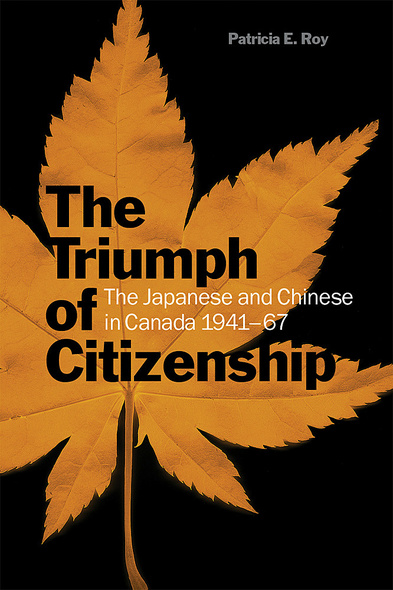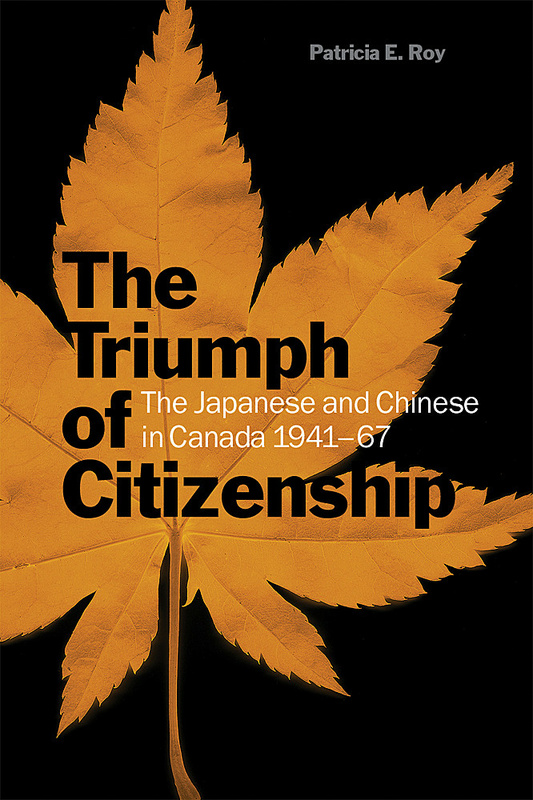
In this companion volume to A White Man’s Province and The Oriental Question, Patricia E. Roy examines the climax of antipathy to Asians in Canada: the removal of all Japanese Canadians from the BC coast in 1942. Their free return was not allowed until 1949. Yet the war also brought increased respect for Chinese Canadians; they were enfranchised in 1947 and the federal government softened its ban on Chinese immigration.
The Triumph of Citizenship explains why Canada ignored the rights of Japanese Canadians and placed strict limits on Chinese immigration. In response, Japanese Canadians and their supporters in the human rights movement managed to halt “repatriation” to Japan, and Chinese Canadians successfully lobbied for the same rights as other Canadians to sponsor immigrants. The final triumph of citizenship came in 1967, when immigration regulations were overhauled and the last remnants of discrimination removed.
The Triumph of Citizenship reminds all Canadians of the values and limits of their citizenship; students of political history and of ethnic relations in particular will find this book compelling.
Awards
- 2008, Shortlisted - Hubert Evans Non-Fiction Book Prize, British Columbia Book Awards
- 2008, Shortlisted - Sir John A. Macdonald Prize, Canadian Historical Association
- 2013, Winner - Patricia E. Roy is the recipient of the Canadian Historical Association's Lifetime Achievement Award for 2013.
Patricia E. Roy’s two previous books on Anglo-Canadian treatment of the Japanese and Chinese in British Columbia, […] have established her reputation as a leading authority on the subject. The present study extends her inquiry into the tumultuous years of the Pacific War and up to 1967. […] no one has marshalled as much evidence from the political arena and the media to capture the cacophony of the expressed views and to discern the evolving direction as Roy has in this book. Her research in public archives and newspaper collections yields a most comprehensive assemblage of the voices of government leaders and politicians, and also of local reactions not only across the country but also community by community across British Columbia.
Introduction
1 A Civil Necessity: The Decision to Evacuate
2 Adverse Sentiments beyond the Coast
3 “Repatriation” to Japan and “Non-Repatriation” to British Columbia
4 The Effects of the War on the Chinese
5 Toward First-Class Citizenship for Japanese Canadians, 1945-4
6 Beyond Enfranchisement: Seeking Full Justice for Japanese Canadians
7 Ending Chinese Exclusion: Immigration Policy, 1950-67
Conclusion
Epilogue
Notes
Index






